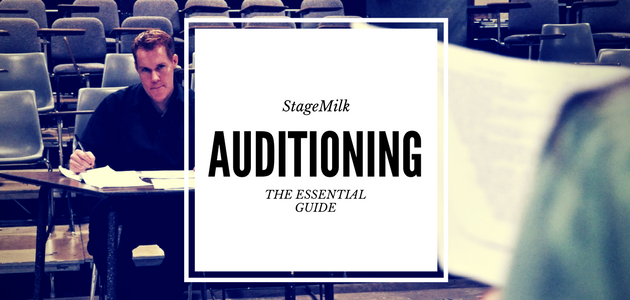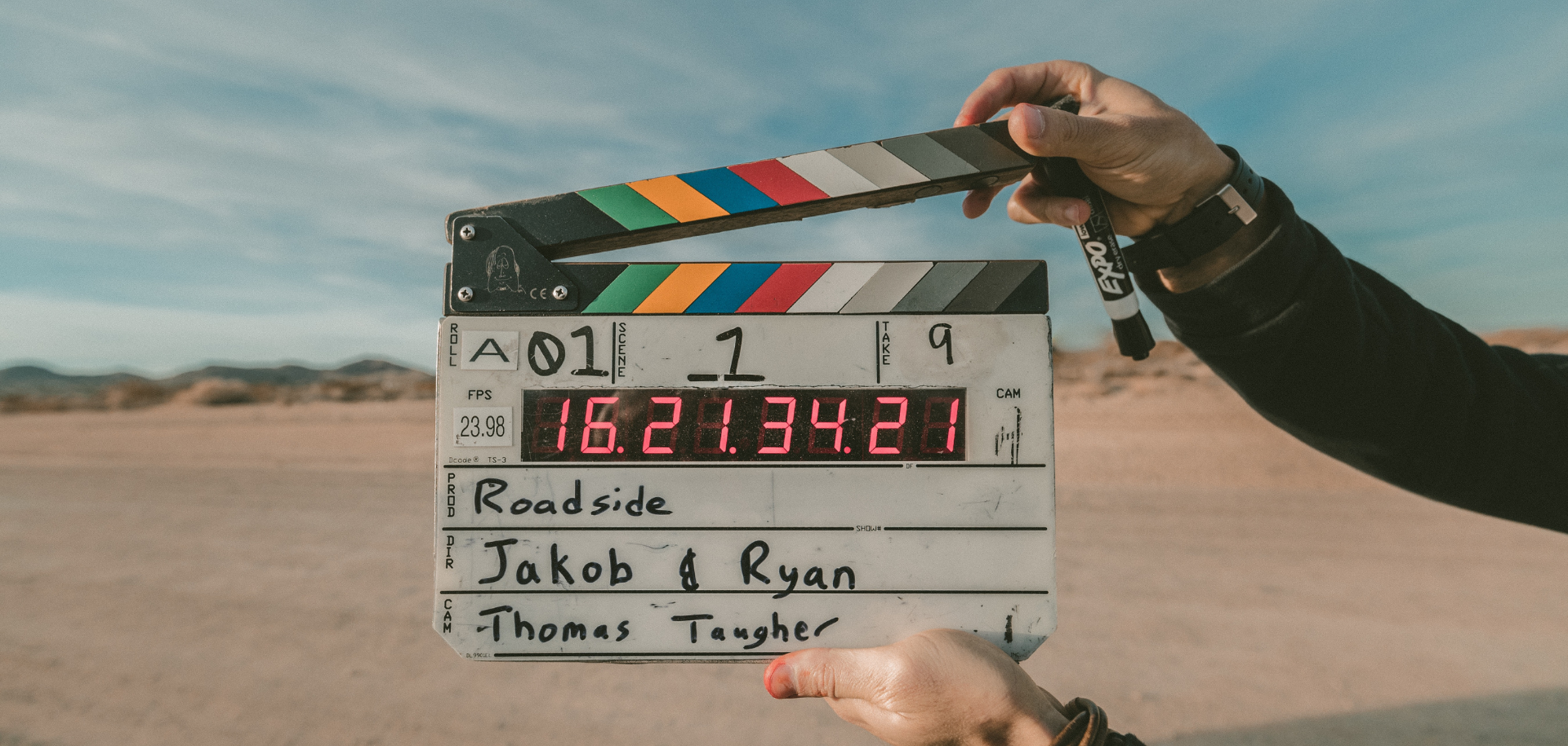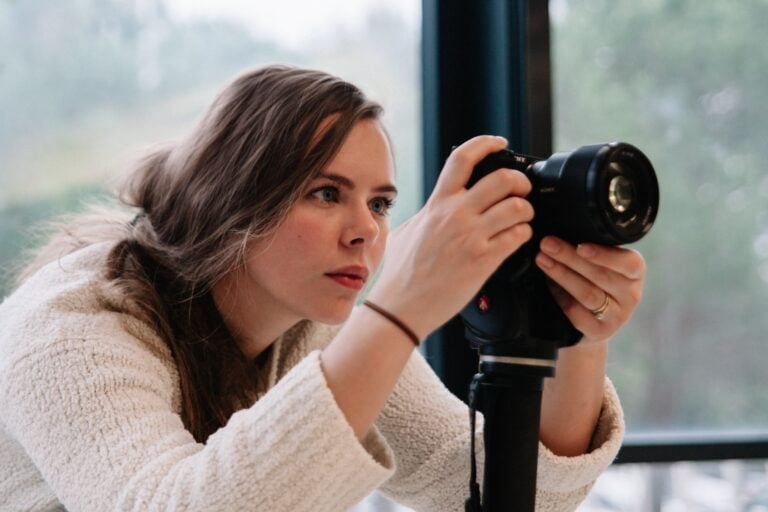
Auditioning
Auditioning is an integral part of an actor’s life. For most actors it is what you will do more than anything else (other than working at your local coffee shop). Consistently churning out good auditions will inevitably lead to landing roles. It’s that simple. If you keep doing good work, directors, casting directors and producers will start to take notice. Knowing how important auditioning is, an how daunting it can be for actors, we wanted to put together an article crammed with every last morsel of information and advice on how to help you nail your next audition.
Updated 16 June 2021
This should help you navigate the page. Everything you need to know about auditioning is here:
How to Approach An Audition
The best advice I have heard so far about auditioning is this: auditioning is an opportunity to act. A chance to play a character and do what you love. Whether that is for a minute, an hour, or a year – it doesn’t matter. All the excessive wanting, hoping, and worrying around auditions just isn’t helpful. Try to forget about the outcome of an audition as much as possible. Bryan Cranston (Breaking Bad’s Mr White) sums this idea up best:
Amazing Audition Advice:
Auditioning for Film/TV
Tricks for Film Auditioning
Let’s be honest, we are all mainly auditioning for Film and TV roles these days. It’s the bread and butter for most actors and where your agent will be pushing you. Here are some quick and dirty tips when auditioning for camera:
- Keep it simple. Do Less. (Robert De Niro explains this below…)
- Flirt. Be cheeky. Play! (Audiences want to see you having fun)
- Use your natural voice. Don’t be affected and put on a fake voice.
- Get comfortable. (Practice scenes to camera as much as possible. Be familiar with acting on camera)
- Don’t overly characterise. Find how the character relates to you. (What about you is similar to the character?)
For more on auditioning for film.
Screen Tests
A screen test is simply an audition in front of camera, defined here as being “in the room” with a casting director or director. This scenario can be very nerve-racking and will be possibly more intimidating than a self taping scenario (explained below). Three simple tips:
- Come into the audition room with your own energy.
- Don’t try to impress. Stay in your world. (Focus on the scene)
- Don’t be difficult. Ask questions if you need, but otherwise do your work. Be polite and leave. You want to be someone that is good to work with.
- Plan out where all your eyelines will be. (If you are talking to 2-3 people where are they in relation to the camera)
- Be prepared (you will hear this over and over again, but it’s good advice 😉 so listen!)
Self Taping
Self Taping is becoming increasing popular in the industry. Simply, it is where you do a screen test (audition to camera) in your own time and ideally with your own equipment, at home or at a studio. It’s become it’s own style of audition and should be looked at from a different angle. You are creating a piece of work. An idea. A conversation. A moment.
Three basics self taping tips:
- Use a simple background – I recommend light blue (Full Self Tape Equipment Guide)
- Keep your eyeline close to camera. (A good rule for all screen acting)
- Have a good reader. (DON’T GET YOUR MUM TO READ)
- Don’t go crazy doing lots of takes. 3 takes per scene is plenty.
- Don’t look for perfection, look for moments.
For more on: nailing self tapes. And self-taping for a theatre audtion.
And if you’d like to learn more about: acting for film.
Auditioning For Theatre
Stage vs Screen
There is a big debate in the acting world about whether there is a difference between stage and screen acting. However, at the core of either argument is this: acting strives at truth. Many would say that that truth is often smaller on screen, and larger on stage, but it is still truth. Always aim to be clear, honest and direct. Getting caught up in playing to the medium is unhelpful. You may have to project, or fill the space in a theatre, but the fundamentals are the same.
Choosing a Monologue/Scene
This is the most important step. If you are working with a great text that you love and have a connection with, a lot of acting issues that may arise down the track will be solved.
Three ideas to help you pick a monologue or scene:
- Are you a similar age to the character in the scene/monologue? (You should be)
- Does the text excite you. Do you want to speak it and act it. (Follow this feeling)
- Does it suit the audition? (Don’t do a film monologue for a drama school. Actually, don’t ever do that).
- Ideally pick something in your natural accent or in your vernacular.
- Choose something that doesn’t need context to work. (Something clear is ideal)
- Don’t go over 2-3 minutes, unless otherwise specified.
Rehearsing a Monologue/Scene
Thoroughly preparing a monologue or scene is vital for nailing an audition. Being well prepared allows you to be free and uninhibited when acting. You can only play and relax on stage when you aren’t worrying about your next line.
How to prepare:
- Read the play.
- Be a detective. Find out about your character from the text.
- Learn the lines (Solidly!).
- Work out your intentions and objectives. What do you want in the scene/monologue?
- Who are you talking to? What’s your relationship.
More on rehearsing a monologue: a detailed article on getting ready for a theatre audition.
Performing a Monologue/Scene
Once you’ve done all the work rehearsing your monologue or scene the next step is to let it all go. The work will be there and it will support you, but trying to act your preparation, or show how much work you’ve done never works.
Here are some ideas for performing a monologue well:
- Take a moment before starting.
- Breathe. Sounds simple but we lose our breath first.
- Bring your imagination into the room. Where are you? Who are you talking to?
- Be in the moment. Easy to say I know, but if you mess up just breathe, stay in the moment and keep going.
- If you are given direction. Take it on. Don’t try to cling to what you have rehearsed.
A tonne of more insights in our article: performing a monologue.
How to Beat Audition Nerves
Are you terrified of auditioning?
However well prepared you might be, nerves still have the power to erode the memory, and dismantle great acting choices. If you let them take control – they will be your undoing. So how do you battle nerves?
- Prepare like a maniac. (Being prepared will help you feel confident going in to audition)
- Warm up (Warm up your voice and body before auditioning so you are ready to go!)
- Think of it as an opportunity to act. (It’s not about getting the role, it’s about doing what you love)
- They asked to see you. (You were invited to audition. Even if you asked, they said yes. This means they take some of the responsibility)
- Meditate. I recommend this as a daily habit, but doing 5 minutes before auditioning will centre you.
For a bunch more on overcoming nerves.
What to Wear to an Audition

This is a simple one.
Just don’t go overboard. I have had some great results wearing clothing that is suggestive of the role. Sports hero: wear a relevant sporting jersey or singlet; Business man: wear a nice shirt. You start to look a little OTT when you wear the full attire of an army officer, or go in topless for a hercules audition.
For the majority of auditions you simply want to look good (and clean). We put together a fun audition hygiene checklist if you want to make sure your approved to head out to your next audition.
How to Get an Audition
Oh yeah, forgot about this part.
If you have an agent, you want to trust them to do their job: getting you auditions. That being said, you want to stay on their case, and stay hungry. If you hear about auditions that you are perfect for, let them know. Don’t ring them everyday, but if something seems like a good opportunity let them know.
If you don’t have an agent, or your agent isn’t getting you any auditions, start looking for projects outside. Be careful to only work with reputable people, and on projects that will move your career forward. If you’ve never done a short film try and audition for a short film; if you’ve done 5 or 6 it might be time to look for a new challenge. Once you’ve found a project simply send a polite email with your headshot and CV and take it from there.
Note: You should never pay for an audition and an agent should never charge fees (other than commission on your pay).
What to do After an Audition
As Bryan Cranston said at the start of this page, an audition is an opportunity to act: that’s all. Once you have left the audition room, or sent in your self tape, forget about it. If you get a call back, or better still the role, great, but you shouldn’t spend time worrying about the result of an audition. There are just too many factors that are out of your hands, so it’s not worth stressing about.
Final Words
We hope this article was helpful. There are plenty of links to more in-depth pages so make sure you check them out. Try not to be too worried about auditions, they are a natural part of the acting game and changing the way you look at them will serve you in your career. If you can try to see them as a chance to do what you love rather than something you dread, or stress about, you will be a much happier and healthier actor.
Auditioning Appendix
Are you about to audition for a project?
If you are looking for a monologue or scene we have you covered.
Stressed?
If you are stressing about up coming auditions, check out this article I wrote, on how to stop dreading auditions.
Let us know your thoughts in the comments below!





I enjoyed reading about how to be ready for an audition! I have been involved with an acting class and would like to take the next step. I wanted to audition for the part as Jellybean in Riverdale.
Thanks Britney. Have you checked out our article on auditioning for Riverdale: https://www.stagemilk.com/how-to-audition-for-riverdale/
Hi.
Thank you guys for the tips and help, very encouraging. Really want to get into the film industry, its a dream of mine to act, but i have no background or experience, only that i love acting, flexibel and adaptable for anything i need to Learn that is yet to come. Only have a CV, nervous but i wont stop till i get a place in the film industry. Thank you.
Kind regards: Nathan.